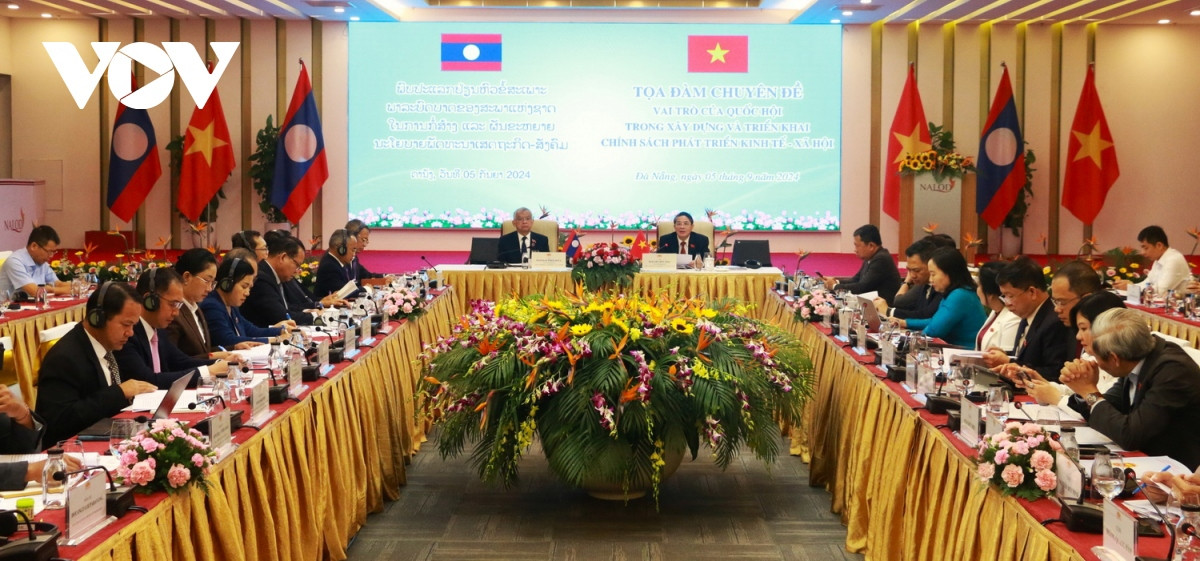

Delegates discussed the policymaking process in foreign investment attraction and management and Vietnamese experience, especially policies for developing collective economies in Vietnam, including policies for agricultural cooperatives, linked to models of green economy, circular economy, and knowledge economy.
Vietnamese delegates shared challenges and limitations encountered in the development and implementation of the national target program for socio-economic development in ethnic minority and mountainous areas for the 2021-2030 period, as well as the role of social policy credit in implementing the program.
Addressing the event, Vice Chairman of the Vietnamese National Assembly Nguyen Duc Hai emphasized that lessons learned from this symposium would assist each country in developing or continuing to fine-tune mechanisms and policies to support socio-economic development in the new context.
The Vietnamese National Assembly will work more closely with the Lao National Assembly, continuing to build on past experiences and cooperation results, to actively contribute to strengthening and developing the great friendship, special solidarity, and comprehensive cooperation between the two Parties, States, and peoples, he said.
Vice Chairman of the Lao National Assembly Sommad Pholsena for his part stated that the symposium presents a valuable opportunity for both sides to deeply assess and share experiences in several matters, such as the role of the National Assembly in addressing audit results, and oversight of the implementation of state budget plans, especially in managing local government revenue.
The results of today’s symposium are valuable and practical lessons for Laos to formulate development policies, especially for issues related to the role of the National Assembly in approving and verifying state investment projects, allocating budgets for completed and new projects, as well as policies for promoting and attracting investment into industrial zones and economic special zones, said Pholsena.
VOV